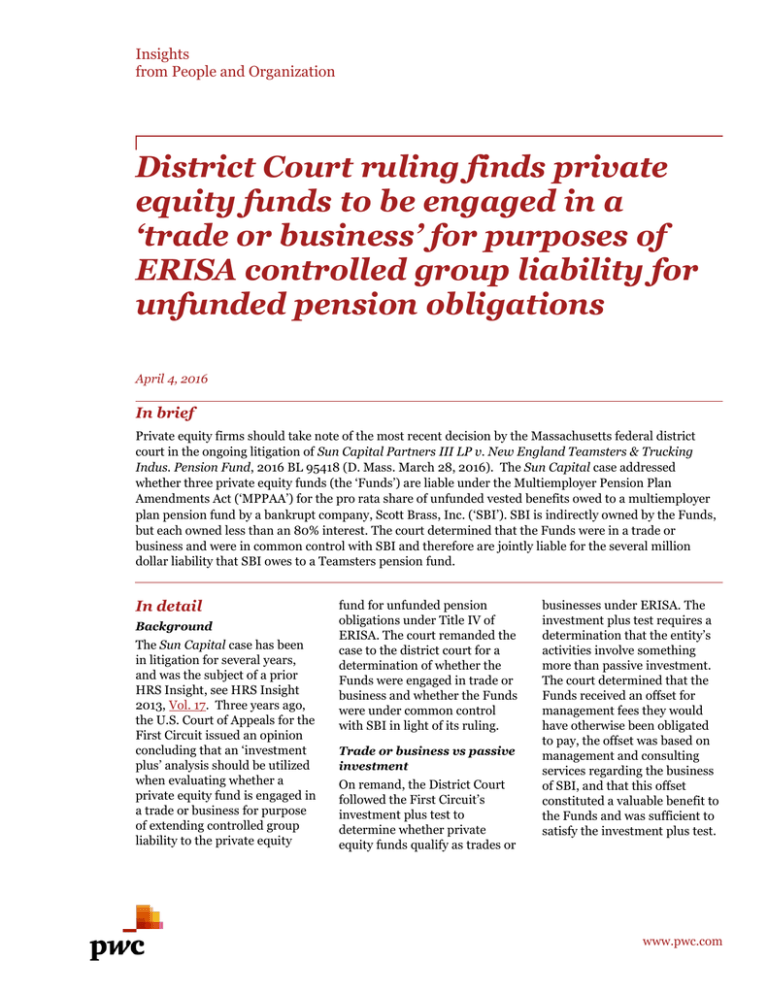
Insights
from People and Organization
District Court ruling finds private
equity funds to be engaged in a
‘trade or business’ for purposes of
ERISA controlled group liability for
unfunded pension obligations
April 4, 2016
In brief
Private equity firms should take note of the most recent decision by the Massachusetts federal district
court in the ongoing litigation of Sun Capital Partners III LP v. New England Teamsters & Trucking
Indus. Pension Fund, 2016 BL 95418 (D. Mass. March 28, 2016). The Sun Capital case addressed
whether three private equity funds (the ‘Funds’) are liable under the Multiemployer Pension Plan
Amendments Act (‘MPPAA’) for the pro rata share of unfunded vested benefits owed to a multiemployer
plan pension fund by a bankrupt company, Scott Brass, Inc. (‘SBI’). SBI is indirectly owned by the Funds,
but each owned less than an 80% interest. The court determined that the Funds were in a trade or
business and were in common control with SBI and therefore are jointly liable for the several million
dollar liability that SBI owes to a Teamsters pension fund.
In detail
Background
The Sun Capital case has been
in litigation for several years,
and was the subject of a prior
HRS Insight, see HRS Insight
2013, Vol. 17. Three years ago,
the U.S. Court of Appeals for the
First Circuit issued an opinion
concluding that an ‘investment
plus’ analysis should be utilized
when evaluating whether a
private equity fund is engaged in
a trade or business for purpose
of extending controlled group
liability to the private equity
fund for unfunded pension
obligations under Title IV of
ERISA. The court remanded the
case to the district court for a
determination of whether the
Funds were engaged in trade or
business and whether the Funds
were under common control
with SBI in light of its ruling.
Trade or business vs passive
investment
On remand, the District Court
followed the First Circuit’s
investment plus test to
determine whether private
equity funds qualify as trades or
businesses under ERISA. The
investment plus test requires a
determination that the entity’s
activities involve something
more than passive investment.
The court determined that the
Funds received an offset for
management fees they would
have otherwise been obligated
to pay, the offset was based on
management and consulting
services regarding the business
of SBI, and that this offset
constituted a valuable benefit to
the Funds and was sufficient to
satisfy the investment plus test.
www.pwc.com
Insights
Common control for pension
withdrawal liability
Under ERISA, trades and businesses
under common control are jointly and
severally liable for the pension
liabilities of each member of the
controlled group. As a general rule, a
controlled group exists where a parent
company has at least an 80% interest
in a subsidiary, as set forth in Section
414 of the Internal Revenue Code and
4001(a) of ERISA. These percentages
were described by the court as a
‘brightline’ test. In this case, SBI was
100% owned by Scott Brass Holding
Corp., which was in turn 100% owned
by Sun Scott Brass LLC. (‘SSBL’).
SSBL was owned 30% by two Sun
Fund III parallel funds, and 70% by
Sun Fund IV. The court noted that the
‘Funds forthrightly admit’ that an
important purpose of dividing
ownership was to keep below the 80%
threshold and avoid withdrawal
liability.
The court found that the Funds were a
‘partnership-in-fact’ despite the legal
structure of the entities. This deemed
partnership then owned 100% of
SSBL which owned 100% of SBI, so
the entities were in common control.
The court held that the brightline test
is not always determinative of
common control, and that ERISA, as
amended by MPPAA, permits a
disregard of organizational formalities
in determining common control. The
court further determined that the
Funds had joined ‘together as a
partnership to invest in and manage’
SBI via their investment in SSBL, and
so determined they were under
common control with SBI, despite the
lack of formal partnership
documentation. In reaching its
decision, the court noted that the
following factors: the Funds had the
same limited partner committees of
the general partner who retained
substantial control over the Funds, the
Funds had identical language in their
2
partnership agreements,the Funds
were operated similarly, they were not
passive investors but were instead
formed to invest in the portfolio
companies, they coinvested in other
companies using the same
organizational structure, and the
Funds split their ownership stake for
reasons that demonstrated a
partnership, such as the top-down
decisions to allocate responsibilities
jointly. Finally the court noted that
there was no evidence of
independence in their co-investments,
such as disagreements over
operations.
The Takeaway
While the Sun Capital decision is
likely be appealed, in light of the
decision, private equity clients should
carefully consider investment
structures and participation in the
management of their portfolio
companies, and consider as well that
the district court’s analysis could be
applicable to other pension liabilities.
pwc
Insights
Let’s talk
For more information, please contact our authors:
Debbie Packer, New York
(646) 471-7238
debbie.packer@pwc.com
Susan Lennon, Washington, DC
(202) 414-4625
susan.m.lennon@pwc.com
or your regional People and Organization professional:
US Practice Leader
Scott Olsen, New York
(646) 471-0651
scott.n.olsen@pwc.com
Charlie Yovino, Atlanta
(678) 419-1330
charles.yovino@pwc.com
Craig O'Donnell, Boston
(617) 530-5400
craig.odonnell@pwc.com
Jack Abraham, Chicago
(312) 298-2164
jack.abraham@pwc.com
Brandon Yerre, Dallas
(214) 999-1406
brandon.w.yerre@pwc.com
Todd Hoffman, Houston
(713) 356-8440
todd.hoffman@pwc.com
Carrie Duarte, Los Angeles
(213) 356-6396
carrie.duarte@pwc.com
Ed Donovan, New York Metro
(646) 471-8855
ed.donovan@pwc.com
Bruce Clouser, Philadelphia
(267) 330-3194
bruce.e.clouser@pwc.com
Jim Dell, San Francisco
(415) 498-6090
jim.dell@pwc.com
Scott Pollak, San Jose
(408) 817-7446
scott.pollack@Saratoga.pwc.com
Nik Shah, Washington Metro
(703) 918-1208
nik.shah@pwc.com
Stay current and connected. Our timely news insights, periodicals, thought leadership, and webcasts help you
anticipate and adapt in today's evolving business environment. Subscribe or manage your subscriptions at:
pwc.com/us/subscriptions
© 2016 PricewaterhouseCoopers LLP, a Delaware limited liability partnership. All rights reserved. PwC refers to the United States member firm, and
may sometimes refer to the PwC network. Each member firm is a separate legal entity. Please see www.pwc.com/structure for further details.
SOLICITATION
This content is for general information purposes only, and should not be used as a substitute for consultation with professional advisors.
PwC United States helps organisations and individuals create the value they’re looking for. We’re a member of the PwC network of firms in 157 countries
with more than 195,000 people who are committed to delivering quality in assurance, tax and advisory services. Find out more and tell us what matters
to you by visiting us at www.pwc.com/US.
3
pwc

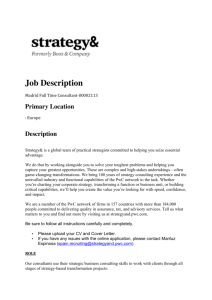
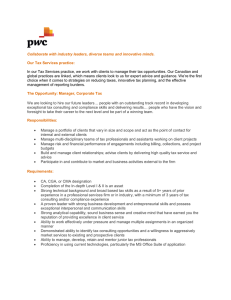
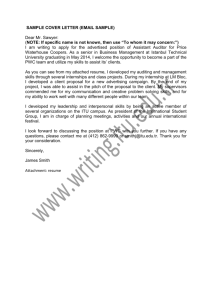
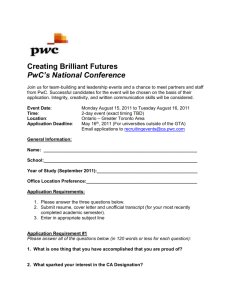
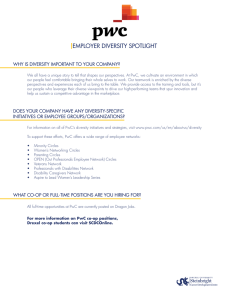
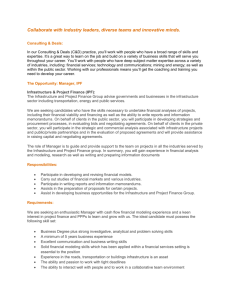
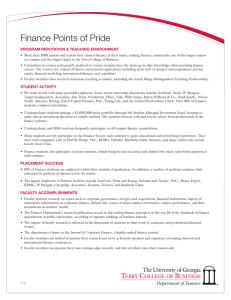
![(On client's letterhead) [Debtor] – [Address]](http://s2.studylib.net/store/data/015619376_1-634457b7baedfa32fb5e3856cbcd37b7-300x300.png)